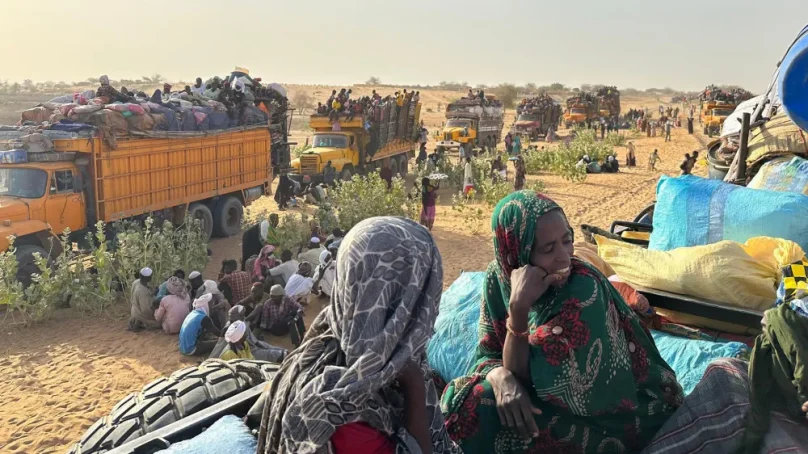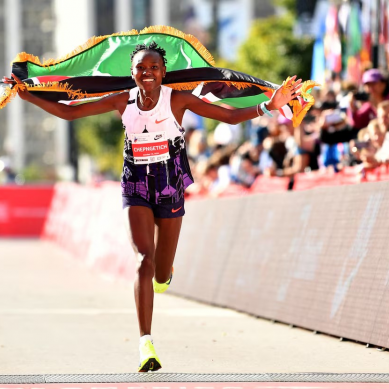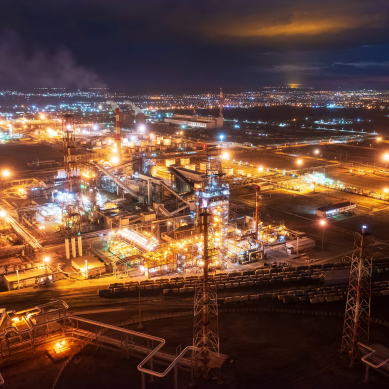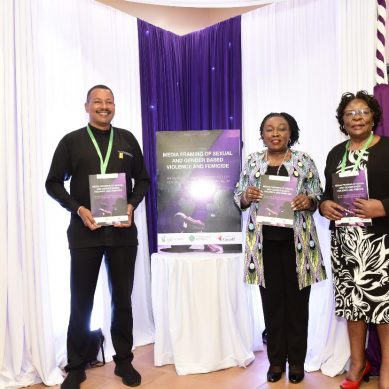
Ethnic labels are slippery in Darfur. The term non-Arab refers to diverse groups including the Fur, Masalit and Zaghawa, who are usually described as “African”.
Yet both “Africans” and Arabs are Black and Muslim, have been present in Darfur for centuries and have intermarried. Some non-Arabs claim to have Arab ancestry and there are Arabised non-Arab groups.
While most Arab groups are nomadic herders of cattle and camels, non-Arab groups tend to be sedentary farmers. Conflicts between them have historically been rooted in the politics and institutions governing access to land and natural resources, drought events that have forced herders to encroach on farming areas, and the destructive interventions of Khartoum and other foreign powers.
Identities have been hardened and militarised during periods of war, but conflict has never been totalising. All communities in Darfur have historically been marginalised by central government.
Not too long ago, Tawila, a small Darfur town nestled at the edge of Sudan’s largest mountain range, was shaped by the rhythms of everyday life – trading goods and growing and harvesting staple crops from fertile fields.
Today, however, the town is one of Darfur and Sudan’s epicentres of displacement, its resources and solidarity stretched to breaking point as hundreds of thousands seek safety there from attacks by the paramilitary-turned-rebel Rapid Support Forces (RSF).
“We have no shelter except small makeshift structures that barely protect us from the heat, and we have no food, clothes, blankets or even proper sanitation,” said Hakeema Mohamed*, who arrived in the town last month.
Mohamed escaped from the nearby, famine-hit Zam displacement camp when it was overrun by RSF fighters. The attack left hundreds dead and pushed over 300,000 people towards Tawila, which was already hosting vast numbers of people.
Sudan’s westernmost region, Darfur, is the stronghold of the RSF, which has been battling the Sudanese Armed Forces (SAF) and allied groups in a two-year conflict that has produced the world’s largest displacement and hunger crises.
Formed as a successor to the so-called “Janjaweed” militias behind the Darfur genocide of the early 2000s, RSF forces have committed a string of mass killings since 2023 that rights groups say amount to ethnic cleansing and possible genocide.
Recent attacks have focused on North Darfur, the only state in Darfur where the army still holds ground. Civilians have escaped to Tawila, also in North Darfur, because it is controlled by an armed group that has taken a neutral position in the war.
Interviewed, residents – all of them recently arrived from Zam – described harsh living conditions around the town. They also reported serious abuses by the RSF and allied militias that pursued them all the way to Tawila.
Some aid from international organisations is arriving into the town, but residents said they largely rely on each other – with newly arrived displaced people often leaning on those who came before them for support and guidance.
There are also “significant efforts being made by the community, local authorities and emergency response rooms”, said Adam Regal, spokesperson for the General Coordination of Displaced Persons and Refugees in Darfur. “But the need exceeds their capacity.”
Tawila has a long experience of displacement, including during the 2000s Darfur conflict, which saw the state arm the mostly Arab Janjaweed militias to crush a revolt by mostly non-Arab rebels resisting marginalisation by the central government.
Back then, Tawila’s own residents were uprooted – and many were forced to move again when clashes broke out in the area early on in the current war. But now, in a reversal, they are the ones receiving and sheltering displaced people.
Tawila is seen as a safe haven because it is controlled by the Sudan Liberation Army-Abdul Wahid (SLA-AW). The rebel group, led by Abdul Wahid al-Nur, took over the area in late 2023 and has maintained a stance of neutrality in the conflict.
Approximately a million people now reside in and around the town, according to Regal, the spokesperson for displaced people and refugees. He said most are from El Fasher – the North Darfur capital – and surrounding displacement camps.
With the rainy season looming, Regal said there must be “urgent and immediate action” from international aid groups and foreign governments to support communities in Tawila.
“There are ways through which aid can arrive immediately if there is seriousness in addressing the situation,” Regal said. “If aid does not arrive urgently, this will turn into a humanitarian catastrophe, and we expect people to die of hunger and thirst.”
Adam Regal, a spokesperson for the General Coordination of Displaced Persons and Refugees in Darfur said “urgent and immediate action” is required from international aid groups and foreign governments to support communities in Tawila.
Those who arrived in Tawila last year are staying inside the town – in schools, public buildings and open fields – but space constraints mean newcomers are living in a desert-like area outside town, with no resources or means of making a living.
Most newcomers said they arrived in extremely difficult conditions after fleeing Zam – Sudan’s largest camp, located just south of El Fasher – which was hosting huge numbers of people from other areas in North Darfur and beyond.
A local aid worker in Tawila, who asked not to be named, said he was struck by the contrast between the paltry support displaced people are receiving from aid organisations now compared to the 2000s, when the UN delivered far more relief.
The international aid effort in Darfur has been weak for several reasons: warring parties have blocked access to areas controlled by their rivals; aid agencies have failed to push back effectively; and the overall response is severely underfunded.
The new arrivals from Zam have built makeshift shelters from local grasses, but they offer no protection from daytime heat – worsened by a lack of tree cover – or from the cold nights typical of areas in the surrounding Jebel Marra mountain range.
Nimma Suliman, a 35-year-old mother-of-eight who fled Zam, said her family struggles to sleep due to the weather conditions as they lack mattresses, blankets and adequate clothing to keep warm.
“We fear the rainy season will come while we are still in this dire situation,” Suliman said. “Right now, we need everything: food, medicine, plastic sheets, shade, and shelter.”
Health services are also limited for new arrivals. One international NGO has set up health posts close to the encampment – about a 10-kilometre walk across a valley from Tawila – but patients must arrive early and wait in long lines to see a medic.
Zam resident Ali Sharif said people are facing severe medical challenges, with strong, dusty winds triggering waves of coughing and diarrhoea among people, and many also suffering from psychological distress.
“Many people are missing – my own cousin has been gone for about 20 days,” Sharif said. “There is no entity searching for the missing despite the reports we have filed. This really affects families emotionally.”
- A Tell Media report







